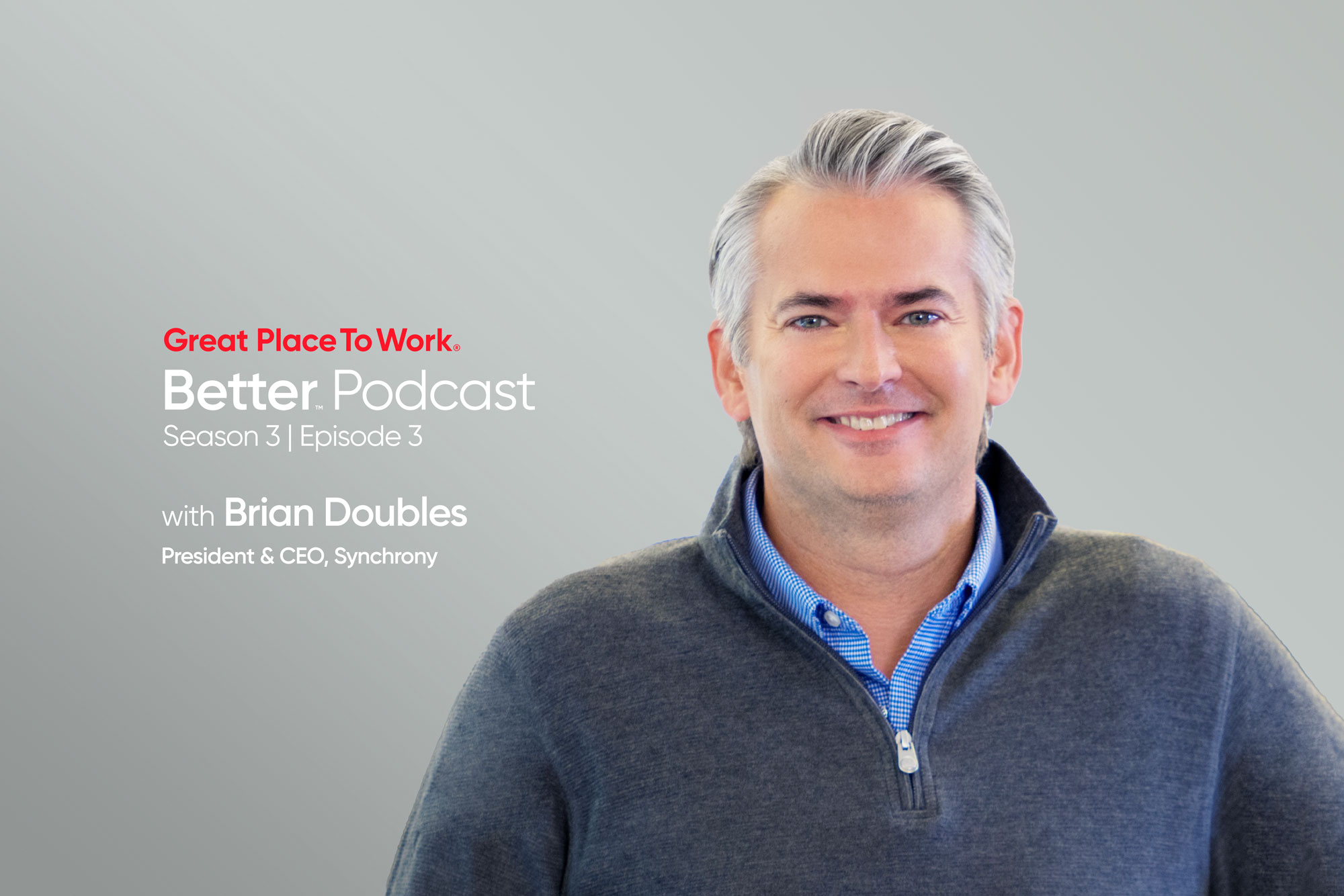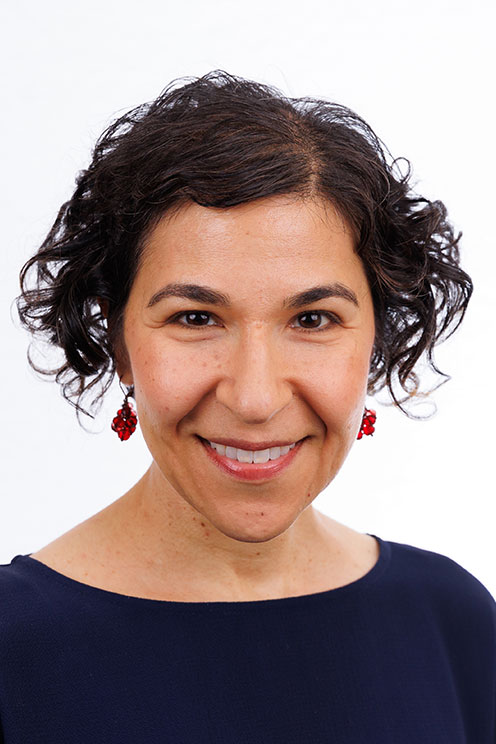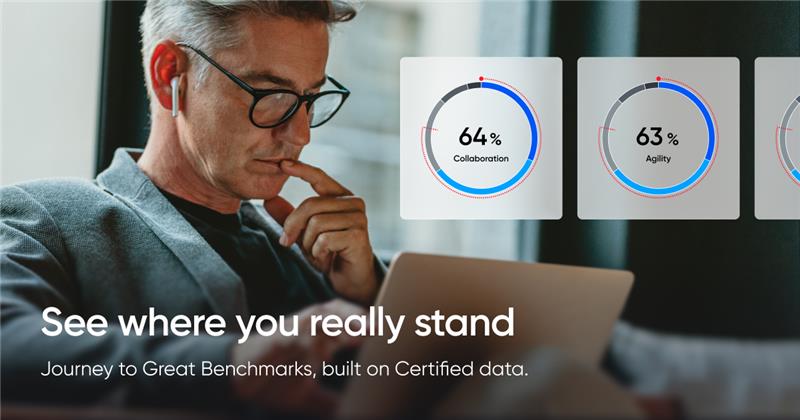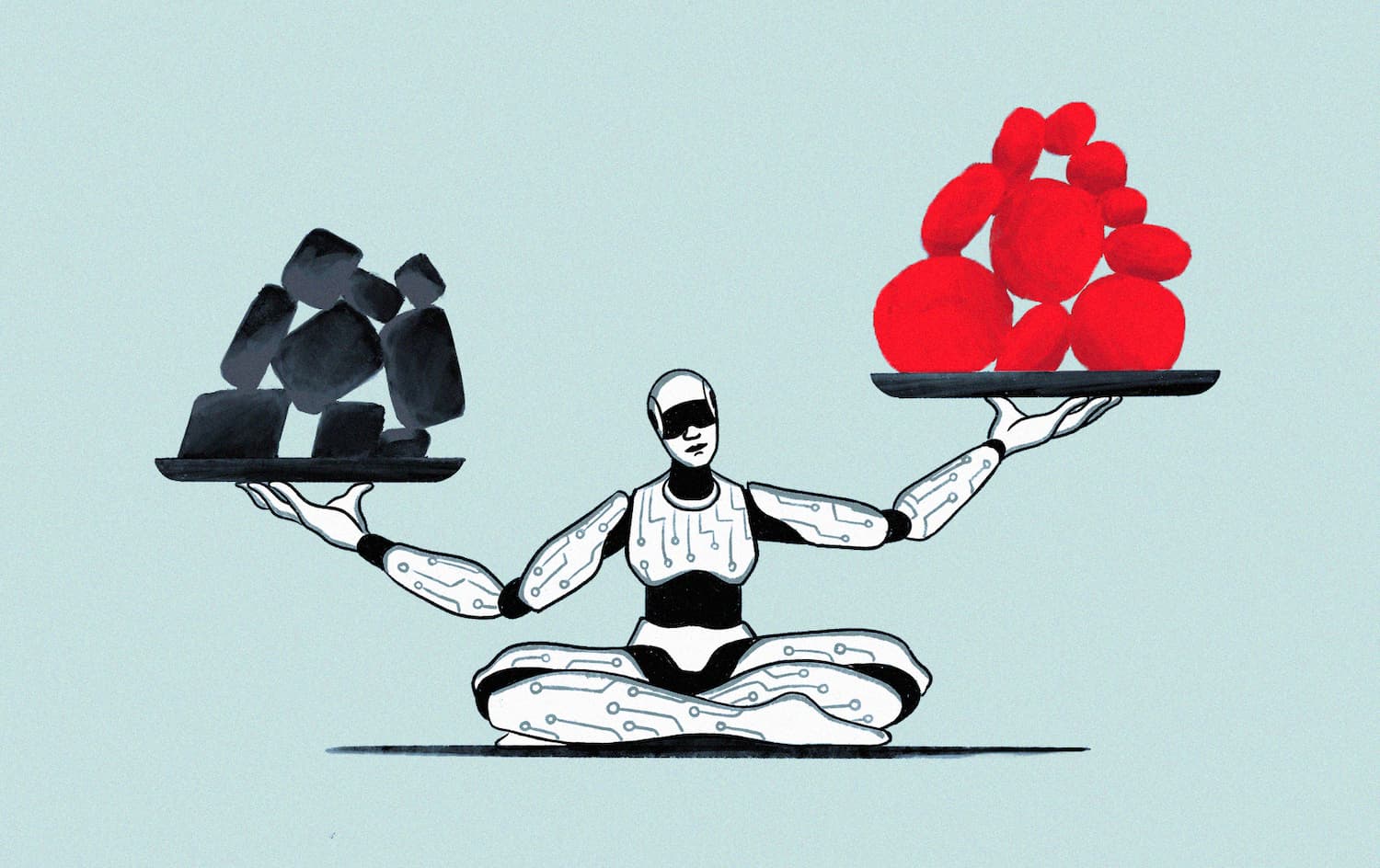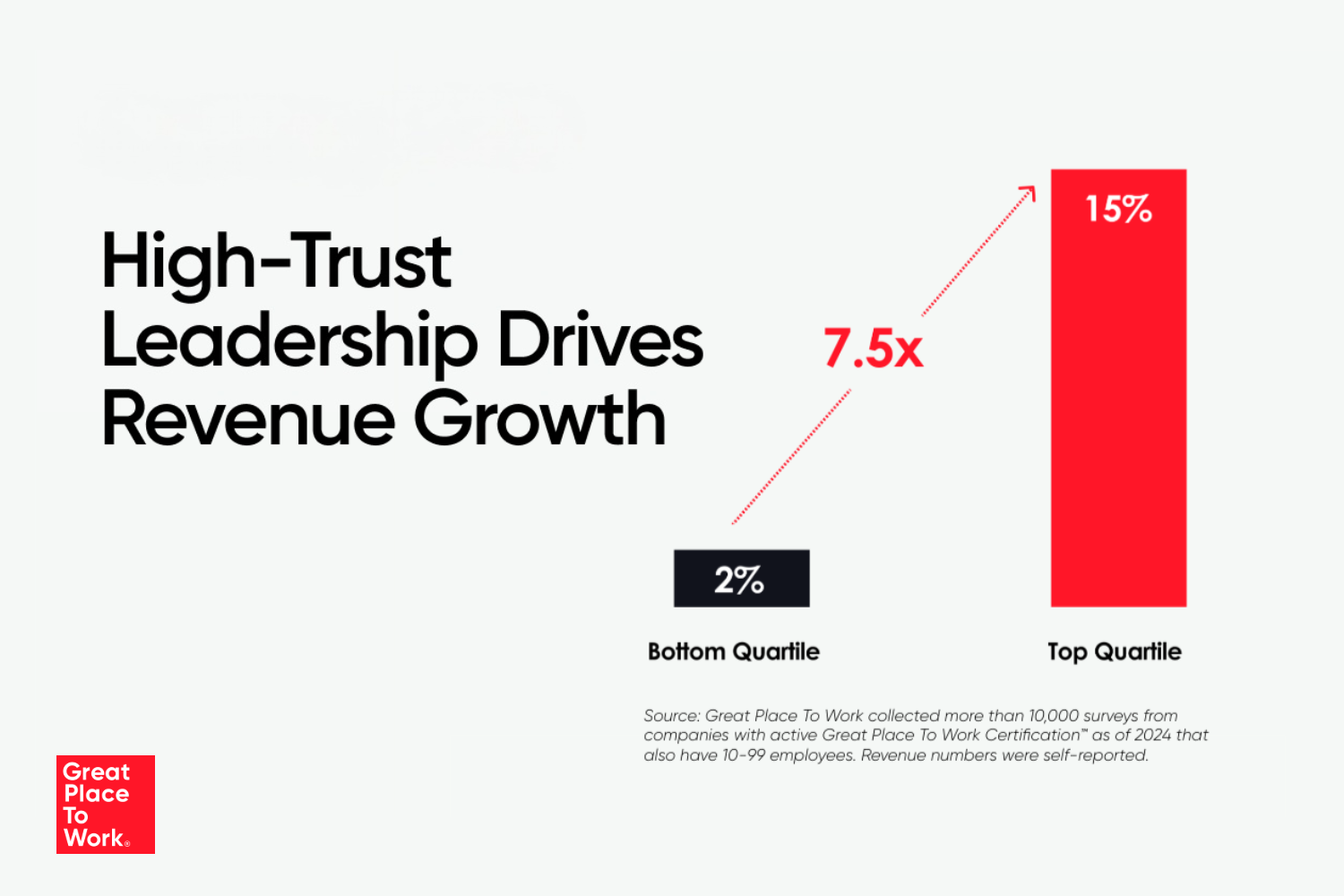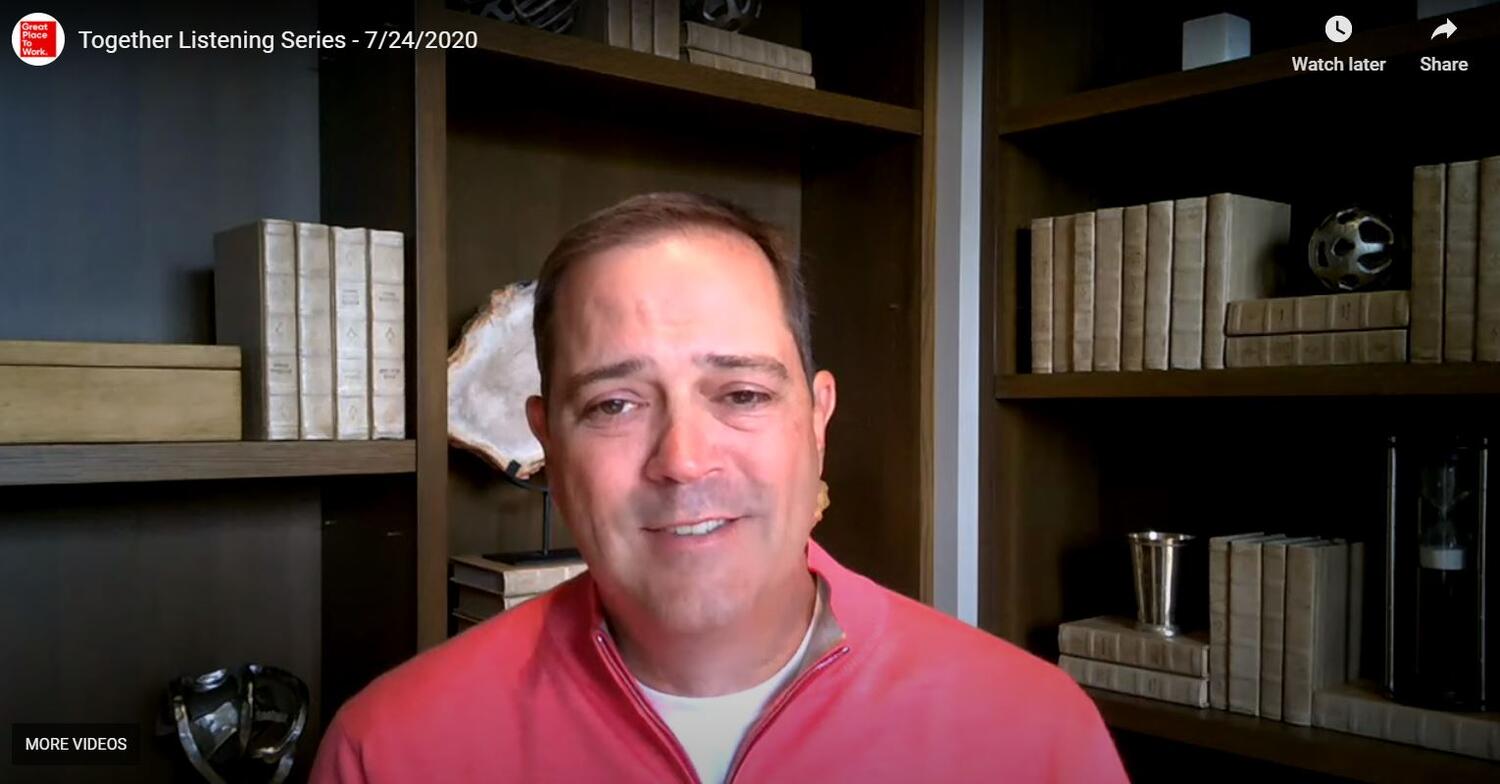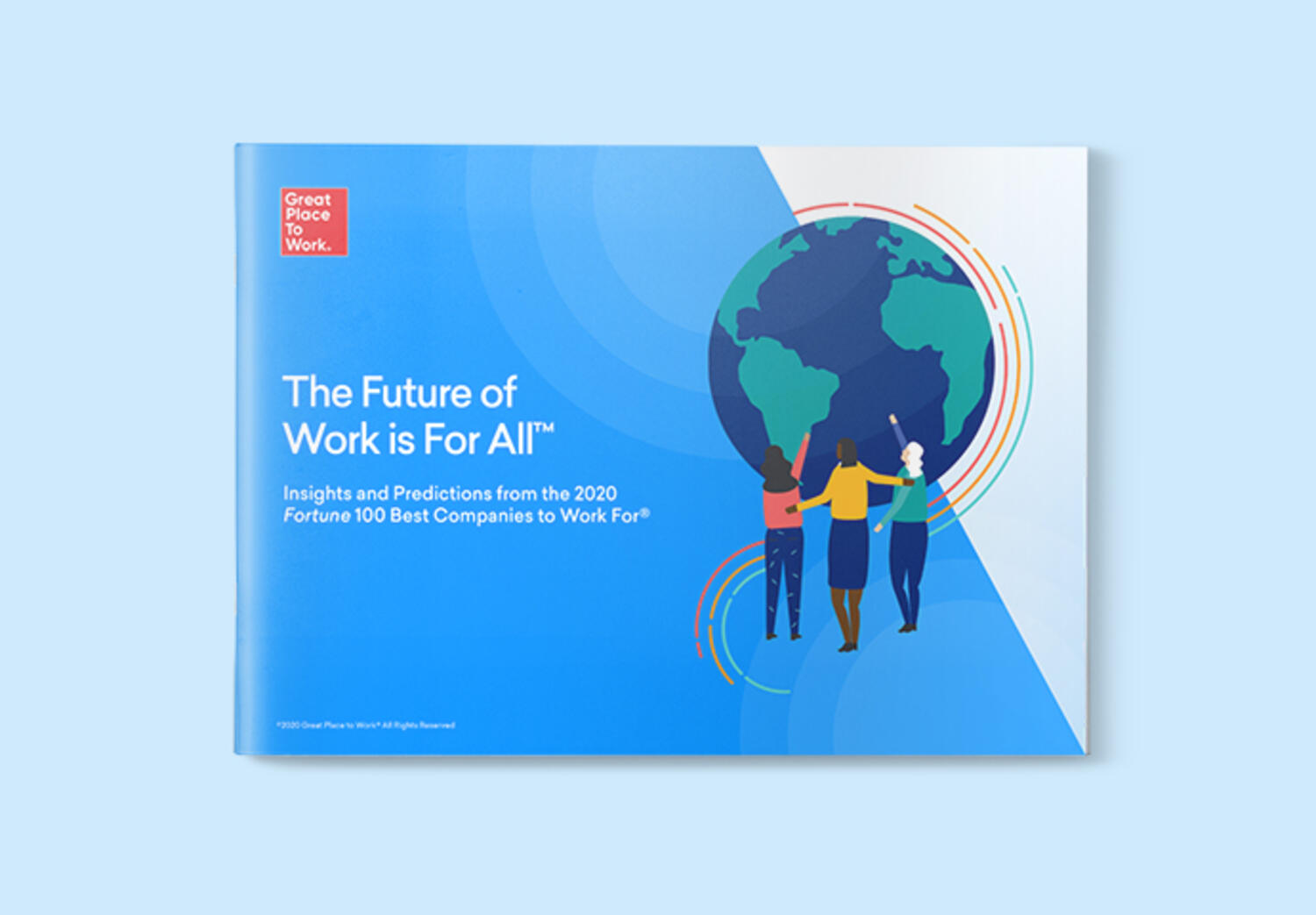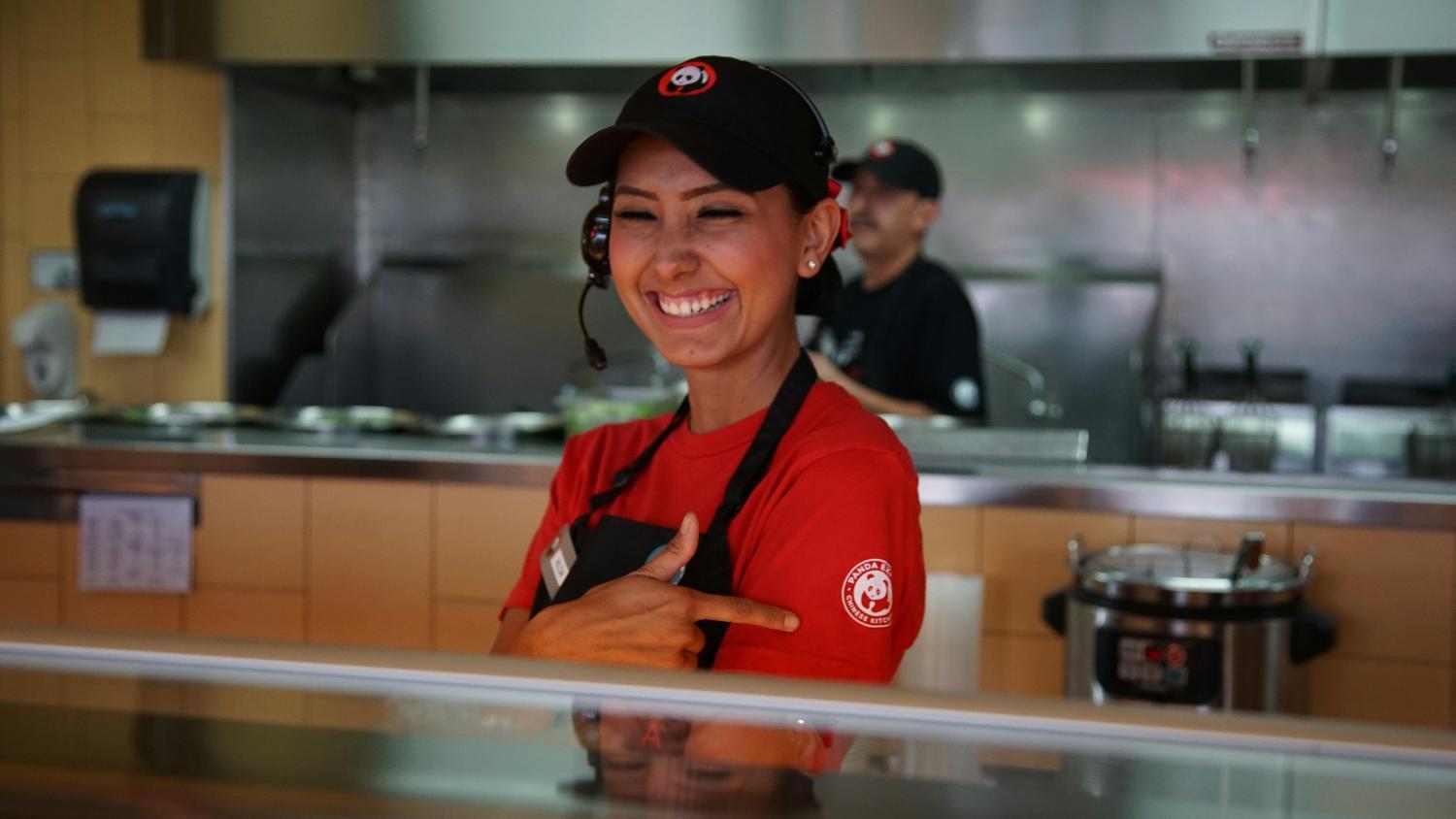Belonging, Best Workplaces, Diversity & Inclusion, Leadership & Management
“The new leadership model has to be about measuring outcomes.”
On this episode of the Better podcast, Brian Doubles, president and CEO of Synchrony, talks about the new leadership model, the benefits of eliminating college degree requirements, hybrid work, and what he’s still figuring out.
On the new leadership model:
Leadership used to be about managing a team and managing time in the office. You'd get into a discussion around talent, and you say, “This person is a really hard worker.” And that was largely based on how much time they spent in the office.
That doesn't work anymore, and that makes some leaders uncomfortable. The new leadership model has to be about measuring outcomes. And that takes that takes a different skill set. It’s not how long they’re working, but what are they delivering for the company? If you’re leading that way, you’ll know which employees are engaged and which aren’t. You don’t have to rely on time in the office. That’s so antiquated.
On return to office mandates:
Regardless of the intent of a CEO, when they mandate coming back to the office, I think employees read that as a lack of trust. When I interview candidates from other companies, they anchor in our flexibility model. It's the first, second and third question I’m asked: “Is this real? Are you going to change this in two or three months?”
What they tell me is there hasn't been a good rationale as to why I have to come back if business was performing well, through the pandemic, we work got done. Customers were happy. Employee satisfaction was up. If you're measuring the right thing, which is the outcome and not hours in the office, does it really matter?
On eliminating college degree requirements:
We eliminated the college degree requirement for about 90% of our roles, and it’s been great. We’ve taken some big bets on people in our company that didn't have a college degree, but had all the other traits, and they've been very successful. I’ll always take a bet on those individuals.
On the biggest challenge of his career:
I think we're in the middle of the biggest challenge that we'll ever see, which is figuring out how all of this works going forward. The new way of working --the flexible hybrid approach. How do you do that and protect and grow the culture? How do you keep the level of engagement high? How do you keep the level of business performance high? We’re in the second inning of the biggest challenge that we're all going to face.
Listen to all episodes
Subscribe to Better wherever podcasts are available so you don't miss an episode of season three.
Roula Amire:
Welcome to Better by Great Place To Work, the global authority on workplace culture. I'm your host, Roula Amire, Content Director at Great Place To Work. On this episode, we speak with Brian Doubles, President and CEO at Synchrony. Brian Doubles, welcome to the podcast.
Brian Doubles:
Thanks for having me.
Roula Amire:
So I saw you went to Michigan State?
Brian Doubles:
I did.
Roula Amire:
You're a Spartan.
Brian Doubles:
I am.
Roula Amire:
Okay. I grew up across the border in Ohio.
Brian Doubles:
Oh, you did?
Roula Amire:
Bowling Green.
Brian Doubles:
Nice.
Roula Amire:
And as a Wolverine fan.
Brian Doubles:
Oh no.
Roula Amire:
So yeah, I'm not sure how this conversation's going to go.
Brian Doubles:
Well, can I tell you a story?
Roula Amire:
Please do.
Brian Doubles:
I grew up a Wolverine fan.
Roula Amire:
You did? What Happened?
Brian Doubles:
I still am a Wolverine fan. I actually root for both teams. That's very rare-
Roula Amire:
That's unheard of.
Brian Doubles:
As you know. I loved the Fab Five growing up as a kid.
Roula Amire:
Yeah.
Brian Doubles:
Chris Webber. I'm actually interested growing up in Ohio how you were not a Buckeyes fan.
Roula Amire:
Right? That's a great question.
Brian Doubles:
That's even more interesting.
Roula Amire:
It's an anomaly.
Brian Doubles:
Right.
Roula Amire:
But when you're on the border, for anyone who knows where Bowling Green is, it is just south of Toledo. And Toledo is hourish from Ann Arbor. So my parents went to Ann Arbor.
Brian Doubles:
Okay.
Roula Amire:
Yeah. Went to Michigan. So they met there for their graduate degrees. They were professors and got jobs at BGSU, Bowling Green State University.
Brian Doubles:
Okay.
Roula Amire:
So that's how we ended up there but growing up, we'd always go up to Ann Arbor.
Brian Doubles:
All right. So you root for U of M when they play the Buckeyes.
Roula Amire:
Yes. And you're taking a risk.
Brian Doubles:
You're taking a risk. You're taking a risk.
Roula Amire:
Yes.
Brian Doubles:
But I root for U of M too, except when they play Michigan State. That's the only game where I side with the Spartans a little bit.
Roula Amire:
And the only game I've ever been to in person in The Big House was Michigan State-Michigan.
Brian Doubles:
Yeah. Who won?
Roula Amire:
Michigan State.
Brian Doubles:
They did?
Roula Amire:
They did.
Brian Doubles:
Oh.
Roula Amire:
Yeah.
Brian Doubles:
We're off to a great start. We're off to a great start.
Roula Amire:
We are, we are. Well, I suppose we should talk about maybe something other than sports. So as a CEO, I'm sure you are familiar with the term quiet quitting.
Brian Doubles:
Yeah.
Roula Amire:
It's on your radar. We've all heard of it. We've been talking about it, depends how you define it as great work-life balance or doing the minimum, "I'm kind of checking out." Either way, it highlights the fact that many employees don't feel that they're cared for, or if they are, they love their job, but they are feeling they're getting burned out.
Brian Doubles:
Right.
Roula Amire:
That they can talk to their managers about workload, but this isn't a new issue. Disengaged workers, they've been in the workforce. So I'm curious to hear why you think quiet quitting is trending now?
Brian Doubles:
Well, I think you said it. I think we've always had disengaged workers. I think in the past, leaders and managers had a better sense for who was engaged and who wasn't because they saw them more. They saw them in the hallways, they saw them working. I think quiet quitting, what's become more challenging is just knowing who's engaged, knowing who's disengaged, who's maybe just putting in the minimum and where are they?
And part of what we're doing at Synchrony is we're really trying to re-engineer how we think about leadership. Leadership used to be about managing a team and managing actually time in office. How many times did you see FaceTime and you'd get into a discussion around talent and you'd say, "This person's a really hard worker?" And that was largely based on how much time they spent in the office.
Roula Amire:
Yep. They showed up every day and sat at their desk.
Brian Doubles:
They showed up every day and that doesn't work anymore and that makes some leaders uncomfortable, but the new leadership model has to be measuring outcomes, has to be measuring outcomes and that takes a different skill set. Not how long are they working, but what are they actually delivering for the company?
Roula Amire:
Right.
Brian Doubles:
And I think if you're leading that way, you'll know which employees are engaged and which aren't, right? You don't have to rely on time in the office. That's so antiquated but we know that we have managers and leaders today who still are wired that way and it takes a different leadership style, but it's also a cultural change I think that we've got to drive through the organization because it's on the companies to drive that engagement, to make the employee want to show up, to keep them engaged and that can be hard. It's a big challenge that we're all dealing with but it's absolutely critical/.
We've made the decision to allow all of our employees to work however they want. You can come in part-time. You can stay at home. That's a big message. We're saying, "We trust you. We trust you to be engaged and to deliver for us and the company." And they have been, it's working. It's working but I still worry about how do we keep that sustainability? How do we keep the employees engaged at the same level that they've been the past three years?
Roula Amire:
Prior to COVID, were you remote at all? Was that an option for Synchrony employees?
Brian Doubles:
On an exception basis. So you could be remote. We had some roles that were a 100% remote, but for the most part, we were anchored to one of our sites. And what we saw as we entered the pandemic is that we were a 100% remote and we were executing really well as a company. We were supporting our partners, customers.
Roula Amire:
Even better?
Brian Doubles:
I don't know about better, but we didn't see any dip in performance.
Roula Amire:
No change.
Brian Doubles:
No dip in performance. We were just kind of firing on all cylinders and that really prompted me to take a step back and say, "Okay, this is working." One, I would've never guessed in a million years it was going to work. But I said, "Wow, it's working." And employees seemed happier, more balanced, more engaged. And I said, "Okay, we're never going to go back to the way things were. That's clear. I don't know how far we're going to commit to this flexibility, but we're never going to go back."
And we did a bunch of pulse surveys of our employee base and then in September 2020 we said, "Look, we're anchored in flexibility from now on." And we declared at that point that you can work from home, you can come into the office, you can do a combination of both, and the employee response was fantastic. Basically we're saying, "We trust you." We've delivered through the pandemic. The business hasn't suffered. We had two of our most profitable years and we said, "This can work, this can work." And employees can manage that work-life integration better than they have under the old model.
Roula Amire:
Right.
Brian Doubles:
And that's something that we wanted to support.
Roula Amire:
So it doesn't sound like you needed any persuading as a CEO to make the flexibility model permanent. You saw for yourself, or did it take some persuading? Because there are many CEOs who are saying the opposite of what you're saying, "Return to the office."
Brian Doubles:
Right. I saw it for myself personally. So I have two young girls, 10, 11. And I saw how I was able to manage my own work-life balance better than I ever had in my career.
Roula Amire:
Give me some examples. What did that look like?
Brian Doubles:
Well, in my role, I never made it home for dinner on a weeknight. And then during the pandemic, I was home for every dinner during the pandemic. I never missed one because we were all home. We were all quarantined at home and that was really nice. That was really nice. Occasionally I could pop out between calls and get the kids off the bus. The look of shock on their face. I never did that.
Roula Amire:
"Is that dad?"
Brian Doubles:
Yeah. They're like, "Oh my God, is that dad? What's wrong? Is everything okay? What are you doing here?" That was really nice. And I said, "Hey, if I'm experiencing that, then I can only imagine how the rest of our 17,000 employees are experiencing the same thing." I said, "Wow, there's something to this." I was still as committed and engaged as I've ever been. I was working just as hard. We were delivering as a company but I said, "Wow, I've reclaimed some of the stuff that I've been missing in the first part of their lives and that was really nice." And I said, "Wow, I want to give that to all of our employees," and I saw how effective it could be.
Roula Amire:
Because you experienced it.
Brian Doubles:
Because I did it myself.
Roula Amire:
Just like anyone else, right?
Brian Doubles:
Yeah.
Roula Amire:
And what is your work-life balance now? Are you still home primarily? Are you back and forth to the office? Is it flexible?
Brian Doubles:
It's flexible. I'm still figuring it out for myself, to be honest. So I spent a couple days in the office. I spent a couple days at home and it's working. What I'm trying to do, and I think we're all trying to figure out our own rhythm. If I have in-person meetings, I want to come into the office and have those. If I'm working on something collaborative, then I want to be in the office for that. If I'm looking at a demo of a new product, I'm going to come in for that. If I'm reading our annual report, I can do that at home. If I'm doing one-on-ones or if I have a customer meeting and they're remote, then I'll do that from home.
So I'm trying to be a little more intentional about my calendar and pick a day and say, "Okay, this is a virtual day," because the worst thing that I experienced when we were just coming back into the office, even on a part-time basis, was when I come into the office and I would have video calls all day. I was like, "Okay, I came all the way in..."
Roula Amire:
And you're literally just in a room all day.
Brian Doubles:
"And I'm doing the same thing that I would do at home." And it actually bothered me even more to be in the office doing that because I could hear people in the hallways and I wanted to go engage with them, but I'm back-to-back video calls all day. I said, "This is not great." So I look at my calendar every day, I said, "Okay, this could be in person, an in-person day." Then I go and I really over-index on in-person meetings. I say, "Okay, this is more of a remote day. I might as well do that from home and save myself the hour-and-a-half commute."
But like I said, I'm still figuring it out. And what we're doing as a leadership team is we're anchoring around a couple days, Tuesday, Wednesday, Thursday, where we're going to try and be a little more intentional about being in the office so that we can work together. Right now we're working on our strategic plan and that's very collaborative and it's just a much better meeting to do that in person, but there's some things that are better virtually, and you just do those from home.
Roula Amire:
And it sounds like your experience in the office when you go in is better because before when you were in, yeah you were just in meetings and kind of locked in room, so to speak, and people are milling about. So when you go in now, you're actually collaborating, you're engaging with your employees, with your team members because that's the goal. That's the intention of going in.
Brian Doubles:
Yeah, absolutely. It's very intentional. So I go in and I'll work with my assistant and say, "I got a free hour here. Let's do an in-person round table with employees because I have the time and I'm here. And if they're here, let's get together." And then what I also... I didn't realize I missed it as much, just the impromptu hallway conversations. I know that gets talked about a lot, but when we were a 100% remote, I didn't feel like I missed it. And then I went back and I was like, "Oh wow, that was really nice. I got to connect with five or 10 employees just-"
Roula Amire:
Walking around.
Brian Doubles:
"Walking between buildings or walking to my next meeting," or whatever it was and it was pretty impactful. And I think other employees, as they start to come back, even the ones that said, "Hey, I want to be a 100% remote," they're coming back now, maybe it's just one day a week voluntarily. We're not asking them to come back. We're not forcing it or requiring it but they're coming back and saying, "Wow, I had a great experience. I'm going to come back next week." And they start to talk to their teams and their colleagues.
And so what's great is that the hybrid thing is happening organically. There's no mandates, there's no policies. We're not saying, "You got to come in Tuesday, Wednesday, Thursday, and every other Friday." We're just saying, "Come in when it makes sense. If you have something to work on that's going to be a better in-person meeting, collaborative with your team, come on in, leverage one of our hubs. But if you look at your calendar and it's sitting on Microsoft Teams calls all day, do it from home."
Roula Amire:
No problem.
Brian Doubles:
No problem.
Roula Amire:
What percentage are hybrid, remote, or in the office? Or is there any percentage who do come in five days a week?
Brian Doubles:
There's a small percentage that come in regularly. I would tell you we have statistics on that, but they're not reliable because what we've seen is that even the employees that said, "I want to be a 100% remote," are changing.
Roula Amire:
They're coming in.
Brian Doubles:
They're coming in.
Roula Amire:
For the one a day water cooler chit-chat.
Brian Doubles:
Maybe once a week. And so that's changing quite a bit. So Stanford, Connecticut's our headquarters, every one of our employees a 100% have come in at least one day.
Roula Amire:
How many employees is that approximately?
Brian Doubles:
It's about 600, and we've had employees come to us and say, "Hey look, I elected to be a 100% remote, but can I come in a couple days and just try it?" And we have plenty of space for people. So I would say the momentum's building and what's great is it's just happening organically.
Roula Amire:
Organically.
Brian Doubles:
People are self-selecting to come in and say, "Hey, I want to meet with my team, or I have this project I'm working on and it makes more sense to get in a conference room together versus doing it over video."
Roula Amire:
You mentioned a few times, "We trust our employees. They can choose when they want to work, how they want to work, where they want to work." So does that mean that CEOs who are mandating in office, do you feel like there's a percentage... The impetus behind that is that they don't trust their employees?
Brian Doubles:
I can't speak for other CEOs, but what I would say is that regardless of the intent of the CEO when they mandate coming back to the office, I do think employees read that as a lack of trust. And I've had, when I interview candidates from other companies, they really anchor in our flexibility model. It's the first, second and third question like, "Is this real? Are you really going to change this in two or three months?" And what they tell me is, "There hasn't been a good rationale as to why I have to come back in. Business was performing well through the pandemic, work got done, customers were happy, employee satisfaction was up. So why? Why is it not just up to me if I'm delivering and I'm delivering the outcome?"
So back to where I started, if you're measuring the right thing, which is the outcome and not hours in the office, does it really matter?
Roula Amire:
Exactly. So a growing number of companies are eliminating the college degree to widen the talent pool and I know Synchrony has hired employees without degrees. Why should other leaders look beyond degrees and what does that do for the company, for the culture and for your performance?
Brian Doubles:
So we eliminated the college degree requirement for about 90% of our roles. So almost all of our roles and it's been great.
Roula Amire:
And when did that happen approximately?
Brian Doubles:
About a year-and-a-half ago.
Roula Amire:
Okay.
Brian Doubles:
Yeah. And it's really opened one, as you said, the applicant pool for jobs but it also I think sends a big message that I will always take a bet on somebody who is passionate about the company, has the right culture, values, can be successful in our organization, we can teach them the rest. I'll take that individual over somebody who just has a great resume, looks good on paper, but I can't answer the other questions. And we've had a lot of-
Roula Amire:
What are those other questions?
Brian Doubles:
Culture, value, passion for the company, all of those things. If I can get that, that's going to be a successful employee, I know that, versus somebody that just has the degree but I don't know about the other pieces. And we've taken some big bets on people in our company that didn't have a college degree but had all the other traits and they've been very successful. And so I'll always take a bet on those individuals.
The other thing, we joined the OneTen Coalition and we've been able, just since then, because of the college degree requirement, when we lifted it, we've hired a 1,000 black employees without college degrees into our company, which is something we're really proud of. And so I think more and more, the way I think about it, we can give employees the skills that they need to be successful and to grow their careers. We do tuition reimbursement, we do $9,000 a year in skills reimbursement. I think that's the model going forward.
It's not to say that... We hire a ton of people who have four year degrees as well, but I think you have to be open to both.
Roula Amire:
You have to be open to change.
Brian Doubles:
Open to change. Right?
Roula Amire:
Right.
Brian Doubles:
And you have to experiment. You have to experiment. This to me wasn't taking a big risk, but it's been successful so far.
Roula Amire:
So if someone's listening and says, "Okay Brian, that sounds good, but how do I learn those intangibles, the culture, they're a fit, if they're passionate without having a resume to go with it?" So in other words, where do you start? So you have a resume and how do you learn those intangibles if something doesn't get you in the door to begin with?
Brian Doubles:
Yeah. Well, you got to take a chance and bring people in the door and you got to assess quickly for the traits that really matter.
Roula Amire:
So in-person...
Brian Doubles:
Doesn't even have to be in-person.
Roula Amire:
Okay.
Brian Doubles:
I think we have to find a way to make the virtual thing work. We hired a ton of people, even at very senior levels in the company virtually. And so we have to be able to do that. It's a little bit harder to assess, but-
Roula Amire:
But it can be done.
Brian Doubles:
It can be done if we're anchored in flexibility. We have some fantastic hires, people that we brought in during the pandemic that I didn't meet until six months ago. We just started a senior leadership meeting back in May and the number of senior executives in our company that I met for the first time was pretty astounding. People come after me like, "Oh, I came on back in September 2020 or December 2020 and I had seen them on video, but we had never met face to face."
That's the new model. We're challenging all of those things. Even we used to have a belief that certain jobs were headquarter jobs. "Oh, that's a headquarter job." Well, we just did it for two years and they weren't at headquarters. My job arguably is a headquarter job. For two years, I wasn't at headquarters. And so I think just blowing up some of these old ways of thinking to adapt to how we're operating now and the college degree is one of them.
Roula Amire:
Switching gears a bit, I have a few questions to help our listeners get to know you a little bit more. What's the best piece of career advice you go back and give your younger self?
Brian Doubles:
Oh, listen more. When I was early in my career, I felt like with the benefit of hindsight now, I was always waiting to talk. I was always preparing what I was going to say and not doing a good enough job listening and that's something that I've really tried to hone over the last five, 10 years.
Roula Amire:
And we can all benefit from that advice.
Brian Doubles:
Right.
Roula Amire:
What is a favorite book or podcast that your peers should check out?
Brian Doubles:
I love Bob Iger's book, Ride of A Lifetime. I've really enjoyed it. A lot of relevant lessons in there about just strategy and how to adapt and evolve a historic company like Disney. And we had Bob speak at our leadership meeting. He's fantastic and just a lot of great advice in there.
Roula Amire:
Any podcasts?
Brian Doubles:
Can I plug yours?
Roula Amire:
Absolutely. The Better podcast from Great Place To Work.
Brian Doubles:
There you go.
Roula Amire:
Who's the most important person you talk with every day? That can be personally or professionally or both?
Brian Doubles:
My wife. I think when I get home, I need to find a way to separate a little bit of whatever that day encompassed and just get grounded and coming home and she helps me do that. It's just nice to disconnect and hear about the carpool with the kids on the way to swim practice.
Roula Amire:
You said how old are your daughters?
Brian Doubles:
10 and 11.
Roula Amire:
Okay. [inaudible] Are those twins? Are they too young? They're considered a tween.
Brian Doubles:
I don't know. They're starting-
Roula Amire:
I'm sure they keep you grounded.
Brian Doubles:
They're starting to operate like teens.
Roula Amire:
There you go.
Brian Doubles:
Which is terrifying, which is terrifying. But that's just a nice way to disconnect and get grounded at the end of the day and just talk about what happened at dance practice or swim or whatever.
Roula Amire:
Life.
Brian Doubles:
Just life. Just life. And disconnect a little bit. So definitely my wife.
Roula Amire:
Mental health and well-being took such a prominent role during the pandemic. So I'm curious, what's the one way you create a sense of well-being for yourself?
Brian Doubles:
Exercise helps. Exercise helps. So I definitely try to two to three times a week, get in some exercise. The other thing that I try to do is I hate to get stuck in a rut. I have to remind myself every day that life is short and to try and do something that's unplanned or unexpected. Could just be going for a walk with my wife and the kids and the dog, but go to a place we haven't gone before.
And so I challenge myself to do that. I'm not always great at it. It's easy to get stuck in a rut and I just like to try new things and experiment a little bit and kind of push out of my comfort zone.
Roula Amire:
Switch out of the day to day routine.
Brian Doubles:
Yeah.
Roula Amire:
I've just read recently, that's rewiring our brain. That's good that we don't follow the same routine. So take a different block or two to your house, try a different coffee shop.
Brian Doubles:
Yeah.
Roula Amire:
Those kinds of things matter.
Brian Doubles:
Part of this came from out of the pandemic is every day felt exactly the same. You woke up, went into my home office, 10 to 12 hours, back-to-back Zoom calls, Microsoft Teams calls. And then you have dinner, you talk to the kids, watch a TV show, and go to bed. And I was like, "Oh, it's so-"
Roula Amire:
Day in and day out.
Brian Doubles:
"Repetitive."
Roula Amire:
I know.
Brian Doubles:
And you'd lose track of time and space and weeks, months would pass. And so it started, after about a year of that, we started to try and mix it up. "Let's just go do something different." I'm going to go take this call outside."
Roula Amire:
Yeah, something.
Brian Doubles:
Just to get a little bit of variety. Actually, going back to an audio call. How novel is that without video?
Roula Amire:
Right.
Brian Doubles:
That was groundbreaking for me because it sounds so silly, but it was a game changer because I know if I was talking to my CFO or the CHRO, I know what they look like. I don't need to see them on video. I've worked with them for a decade. Then I can walk around my house, I can walk outside, I can see what's going on.
Roula Amire:
Right.
Brian Doubles:
It's such a simple thing but I didn't feel like I was anchored or chained to my video camera.
Roula Amire:
Right, in your screen.
Brian Doubles:
In your screen, right?
Roula Amire:
Yes.
Brian Doubles:
It sounds so simple, but just mixing it up was huge for me.
Roula Amire:
Have you and your family discovered new things to do in town because you had to discover new places?
Brian Doubles:
Yeah. We try and create our own activities. This was in the middle of the quarantine, we did a field day, a family field day because their field day was canceled, obviously home from school. So we created some activities in the backyard, three legged race, all the stuff that they do, water balloon stuff.
Roula Amire:
Fun.
Brian Doubles:
And we kind of did that, but you have to put some thought into it.
Roula Amire:
Right.
Brian Doubles:
Because if you don't, if you're not intentional about it, it won't happen.
Roula Amire:
Right. Things don't change if you're not intentional.
Brian Doubles:
That's right.
Roula Amire:
Every day will be the same.
Brian Doubles:
That's right. So I've tried to carry some of that through now that we're back to hybrid, still pushing myself to just do something different.
Roula Amire:
Right. And think differently.
Brian Doubles:
And think differently, right.
Roula Amire:
What's the biggest challenge you've had to overcome in your work career?
Brian Doubles:
I think I'm dealing with it right now. I think we're in the middle of it.
Roula Amire:
Just going to say that. Yeah.
Brian Doubles:
I think we're in the middle of the biggest challenge that we'll ever see, which is figuring out how all of this works going forward. The new way of working, the flexible hybrid approach. How do you do that? And how do you do that and protect and grow the culture. How do you keep the level of engagement high? How do you keep the level of business performance high? So I think we're in maybe the second inning of the biggest challenge that we're all going to face.
Roula Amire:
How are you maintaining culture with a dispersed workforce?
Brian Doubles:
So a big part of our culture is caring and trust [inaudible] and I think we're anchored in trust. That's a really big deal for me and I think it's so important to our culture. And I think we've done that. I think a big part of who we are is we're also a very inclusive culture. And one of the things that I think a lot about, and we're not there yet, is how do you make the employee who's chosen to work remote a 100% of the time feel included, included in the meetings, in the conversations? How do you give them the ability to contribute in the same way that they would if they were in the room?
So we've told employees that we're anchored in flexibility. That's step one. Step two is figuring out how to make that a reality. How do you make sure that that individual that's working remotely has exactly the same career opportunities that everybody else in the company has? And some of this is going to rely on technology.
Roula Amire:Yeah. That's challenging.
Brian Doubles
:It's challenging. It's not there yet. We all know that you have a meeting with six people in a conference room and two on video. The meeting is kind of happening in the conference room and the technology isn't really there to allow those individuals to contribute at the same level they would if they're in the room. So you have to run the meeting different. You have to solicit their input and that sounds easy, but you fall back into old habits.
And I've seen it where even with our leadership team because we have a handful of remote employees, I can see it on their face like, "Oh, you guys are having the meeting-"
Roula Amire:
Right, "You're talking."
Brian Doubles:
"You're talking."
Roula Amire:
"I'm here."
Brian Doubles:
You're laughing and enjoying each other's company and you're really having the meeting without us."
Roula Amire:
Right.
Brian Doubles:
And so we haven't solved that yet. We haven't solved that yet. I know there's some very innovative technologies with virtual reality and other things that are being developed that I think will give us the ability to do that but it also just takes a much more intentional approach to how you run a meeting so that you're getting that engagement because we started by talking about quiet quitting. Well, if you're dialing into video call after video call and everybody else is in the room, that can be very demotivating.
Roula Amire:
Exactly. I think the takeaway today for me is intention. Everything you're doing is thoughtful and you're making changes with intention and it sounds like that's the future of work.
Brian Doubles:
We think so.
Roula Amire:
Brian, thanks for joining us today. I really appreciate the conversation.
Brian Doubles:
Thank you so much for having me. It's great to be here.
Roula Amire:
Thank you for listening to this episode of Better. You can stream this and previous episodes wherever podcasts are available.


